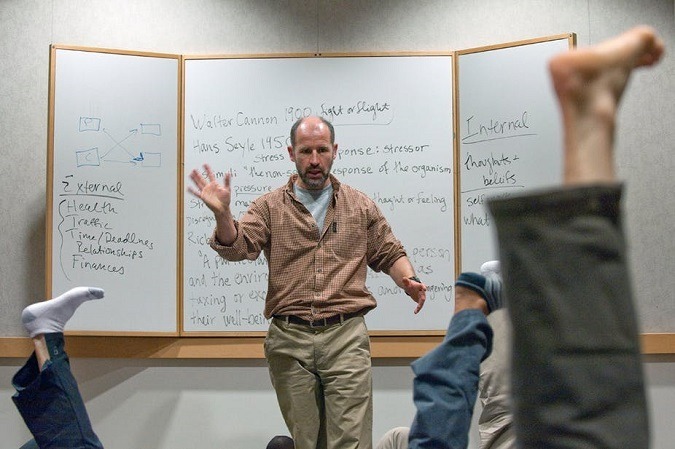Posts Tagged ‘cancer’
Growing research aims at helping cancer patients in distress access most-likely-to-help self-care options, from Mindfulness training to Web-based cognitive behavioral therapy (CBT)
___ Mindfulness in cancer treatment: time to stop and think (The Conversation): “Breathe deeply and focus on the moment: mindfulness now appears everywhere as a technique to improve well-being, including in health care. Mindfulness training is often suggested for cancer patients to reduce high levels of anxiety and distress associated with diagnosis, treatment and anticipation…
Read MoreStudy: Cognitive deficits continue long term in cancer survivors in domains important for social and executive functioning
Cognitive Deficits Continue Long Term in Cancer Survivors (Medscape): “Although cancer patients frequently experience short-term cognitive deficits, little is known about how long these deficits last or whether they worsen over time. Now, data from a large national sample suggest that cognitive deficits may persist long term.
Read MoreCell phone use not seen to increase risk of brain tumors among adults
. Cell phones and risk of brain tumors: What’s the real science? (CNN): “…In 2011, the World Health Organization classified the kind of low-energy radiation that cell phones emit as “possibly carcinogenic” because of a link between cell phone use and a type of malignant brain tumor called glioma and a benign brain tumor called…
Read MoreResearch: Veterans learn to use yoga and meditation exercises to reconnect with their emotions
War veterans learn to use yoga and meditation exercises to reconnect with their emotions. Research shows that simple breathing can change the lives of veterans returning from Iraq and Afghanistan.
Read MoreGrand Rounds: Best of Health and Medical Blogging
Welcome to a new edition of Grand Rounds blog carnival, the weekly edition of what’s best in the health and medical blogosphere. This week, twenty four bloggers share data, insights, questions, reflections and more. Enjoy!
Read MoreAlzheimer’s Disease: New Survey and Research Study on Awareness, Testing and Prevention
Very interesting new data reinforcing two main themes we have been analyzing for a while: 1) We better start paying serious attention (and R&D dollars) to lifestyle-based and non-invasive cognitive and emotional health interventions, which are mostly ignored in favor of invasive, drug-based options 2) Interventions will need to be personalized. The study below analyzes data…
Read More





